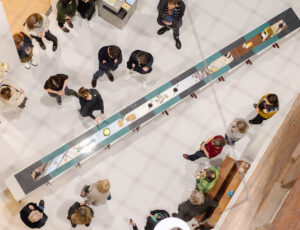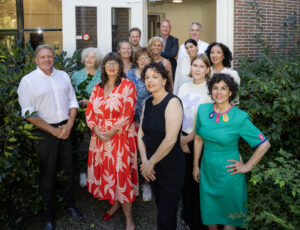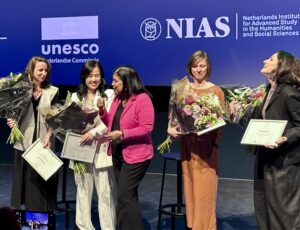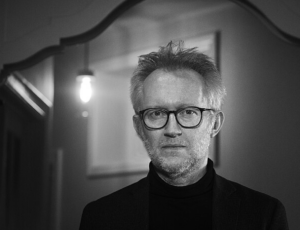In a seminar on 16 May, anthropologist Emmanuel Kreike and linguist Sjef Barbiers, will debate the question whether science should move beyond the Nature-Culture dichotomy.
About the Seminar
The Nature-Culture dichotomy continues to shape debates within and across the humanities, the social sciences, and the sciences. Development and progress –whether in the realms of politics, economics, technology, or science, for example, are generally depicted in terms of a transformation from a state of more Nature to a state of more Culture, from dependency of Nature, to the domestication of Nature and its conversion into Culture. Indeed, the academic world despite several decades of heavy rhetoric on the need for interdisciplinarity, is still structured to reflect the Nature-Culture dichotomy with the disciplines that study Nature on the one hand and the disciplines that study Culture on the other. To what extent is academic research subject to the Nature-Culture dichotomy? What are the strengths and weaknesses of the Nature-Culture dichotomy? Do we need to move beyond the Nature-Culture dichotomy? Are there alternatives?
Sjef Barbiers and Emmanuel Kreike will initiate a debate about these questions. Each will give a 20-30 minute presentation to address these questions from the perspective of their research. We invite our colleagues to contribute to the debate from the perspective of their own research.
To facilitate the debate and help you think through these questions in your own field we encourage participants to read two papers. The paper by Emmanuel Kreike is drawn from his forthcoming book Environmental Infrastructure in African History: Examining the Myth of Natural Resource Management in Namibia (Cambridge University Press, 2013). It addresses these questions from the perspective of the study of environmental change over time. He argues that Nature and Culture have outlived their analytical and empirical utility and proposes an alternative conceptual, analytical and descriptive vocabulary (pp. 1-16 are more theoretical and conceptual and pp. 16-33 provide an empirical example). The second paper, “The possibility of impossible cultures” by Marc Hauser (Nature 460, 2009) describes a research program for linguistic, cultural and moral systems (among others) based on the idea that nature (genetics, neurobiology, physics, etc.) constrains such systems and with the goal to explain the limits of linguistic, cultural and moral variation.
About NIAS Seminars
NIAS Seminars are organised by the Rector of the Institute. They are meant to appeal to interested parties from a wide range of backgrounds and are aimed to encourage closer contact within the Dutch academic world.
NIAS Seminars take place in the Lecture Room (NIAS, Meijboomlaan 1, Wassenaar, telephone 070-512 27 00). This Seminar starts at 11.00 hours and ends at 12.30. Everyone is welcome to attend the seminar and join the discussion. However, since changes in the programme may occur, please let us know if you wish to attend. For further information, contact Communication.



